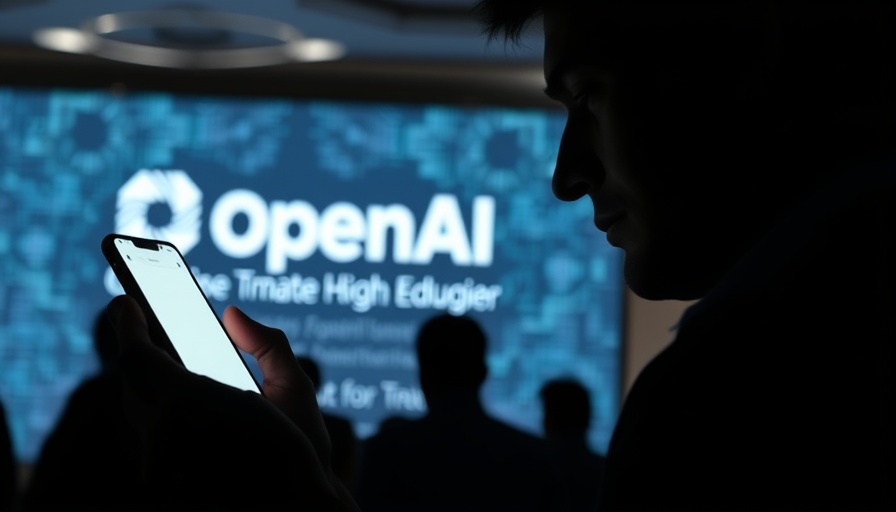
OpenAI Faces Talent Exodus: Analyzing Key Departures to Meta
The tech industry is in a persistent state of flux, and the recent shift of four key researchers from OpenAI to Meta exemplifies the competitive landscape. Mark Zuckerberg's ongoing efforts to build an advanced superintelligence team have resulted in the acquisition of talent that could potentially reshape the future of AI.
The Departing Team: A Look at Their Expertise
Shengjia Zhao, Shuchao Bi, Jiahui Yu, and Hongyu Ren are the latest talents to leave OpenAI. With backgrounds ranging from deep learning to multimodal models, their collective experience is a significant gain for Meta. Zhao was instrumental in the development of OpenAI's GPT-4, while Ren led post-training for several models, making their skills invaluable in advancing Meta’s goals.
Meta's Strategy: Offering Lucrative Incentives
The competition for top talent has intensified, with reports highlighting that Meta has made substantial offers to OpenAI employees, including signing bonuses reportedly reaching $100 million. This bold move reflects Meta's commitment to closing the gap with industry leaders such as OpenAI and Google in the AI space. The ambition behind these offers underscores a larger strategy to enhance their own AI capabilities.
Current Trends: The Race for AI Dominance
As companies vie for supremacy in artificial intelligence, the shifts in personnel are part of a broader trend where big tech firms are investing heavily in talent acquisition. OpenAI CEO Sam Altman has acknowledged these efforts, emphasizing that while Meta's lucrative offers might be tempting, retaining their top-tier researchers remains a priority.
Impact on Innovation: Potential Changes in AI Development
The exodus of skilled researchers from OpenAI could have profound implications for AI research and innovation. With key players transitioning to Meta, there is a potential risk that OpenAI could lag behind in the race to create robust AI systems that serve society better. Conversely, for Meta, this talent acquisition could catalyze breakthroughs in their superintelligence initiatives.
Reflecting on the Bigger Picture: What This Means for AI Industry
This shift raises critical questions about the dynamics within the AI industry. As companies engage in aggressive talent acquisition strategies, the knowledge transfer between organizations can lead to accelerated developments in technology. The growing rivalry could challenge existing paradigms and push for more ethical considerations in the development of AI systems.
Looking Ahead: Expectations and Predictions
As we look to the future, the movement of top talent like Zhao, Bi, Yu, and Ren could signal changes in how AI is developed and implemented across platforms. We may see innovations that enhance user experience and bring AI to even more sectors than imagined. However, the responsibility to guide this innovation ethically remains paramount.
Conclusion: The Ongoing Evolution of AI and Talent Dynamics
The talent migration from OpenAI to Meta not only reshapes both companies but also reflects the ever-evolving nature of the AI industry. As this narrative unfolds, stakeholders must remain vigilant and engaged, ensuring that the direction of innovation prioritizes ethical standards and human welfare.
 Add Row
Add Row  Add
Add 




Write A Comment